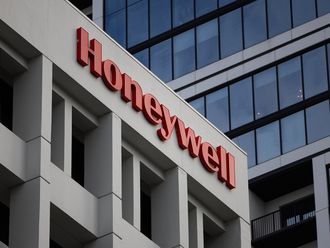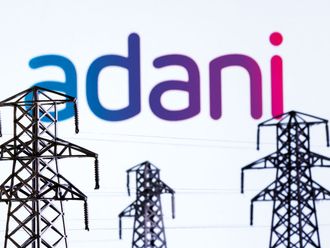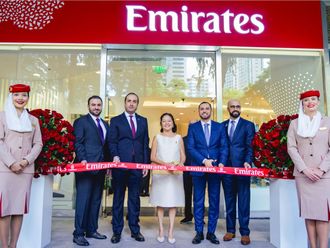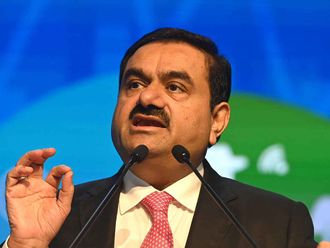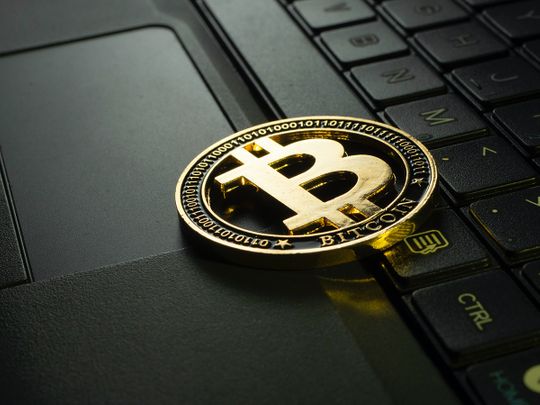
Dubai: Businesses in Dubai that are into cryptocurrencies in any shape or form have one major deadline to meet – April 30.
By that day, these businesses will have to complete the ‘Initial Disclosure Questionnaires’ and submit to the Dubai regulator VARA. It is the first step towards Dubai having a full regulatory regime for any activity related to dealing in virtual assets.
And by extension, protect the rights of investors trading in these crypto assets, with crypto businesses having to provide full/greater transparency on their operations. What it does is reduce the risk of an FTX-type blowout that has plagued trade in crypto assets.
Who needs to submit the IDQ
VARA – which is the Virtual Assets Regulatory Authority in Dubai - provides seven types of regulated virtual asset activity licences.
These cover advisory, broker-dealer services, custody, exchange, lending and borrowing, transfer and settlement, and management and investment services. Any entity based in Dubai that offer any or all of these services must register with VARA.

Voluntary registration is popular since it covers a growing number of cryptocurrency businesses, particularly those with innovative models that might not fit into the traditional categories of financial services recognized by regulators.
“These businesses seek voluntary registration and want to benefit from supervision by a reputable regulator. This reassures investors and counterparties that the company they are dealing with is subject to regulation and supervision of known specialized virtual assets regulator.”
What next after the IDQ?
Further consolidation of the virtual asset licensing regime in Dubai is the obvious next step. Once the IDQs are handed in, entities that qualify for the 'Full Market Product' (FMP) licence will commence their transition to being a VARA regulated operation by August 31.
“VARA has been working closely with both DET (Department of Economy & Tourism) and the emirate’s free zone authorities to ensure a smooth transition for legacy Virtual Assets Service Providers (VASPs) in Dubai," said Henson Orser, CEO, VARA.
"This transition was further supported by VARA’s Minimum Viable Product (MVP) program, a timebound initiative that enabled new applicants to set up operations and become market ready until official release of our full suite of regulations on February 7, 2023.
"The introduction of the Virtual Assets and Related Activities Regulations gives the existing companies, a clear timeline to ensure that they submit their initial disclosures by the end of April.”
Crypto coming under tighter rules
Recently, the European Union’s parliament pushed voted decisively for laws to govern activities in the crypto space, with these likely to come into effect sometime next year. At some point, the US too will have in place laws that govern crypto – and at the same time make it more mainstream.
When it comes to governmental oversight, Dubai and Abu Dhabi have early-mover advantages in the crypto space. Bahrain is the other Gulf jurisdiction that has made headway.
Extending that authority and oversight is what Dubai and VARA is doing through the April 30 deadline on IDQ submissions. “Ensuring that our marketplace is secure, participants are responsible, and investors and consumers are effectively protected is our top priority,” said Helal Saeed Almarri, Director-General of Dubai’s Department of Economy & Tourism, in a recent statement.
“With key stakeholders responsible for commercial licensing across the Emirate working closely to deploy VARA’s full market regulatory construct, we aim to set a benchmark that positions Dubai as a global role model for VA sector development.”
How are investors protected?
The VARA directive ‘entails monitoring trading activity in virtual asset services to prevent price manipulation and create high standards for personal data protection,” said Krishen. “The regulations apply to all virtual asset service providers (VASP) offering services in Dubai (excluding the DIFC).”
The regulation also covers large proprietary traders and voluntary registration for other market participants. (Large proprietary traders are specified as entities investing in their own virtual asset portfolio at or above $250 million during a rolling 30 calendar-day period.)
According to industry sources, Dubai and UAE will be better off by having a full or near-full set of rules to govern crypto businesses. Bitcoin and its peers may have had a terrible 2022, but that doesn't seem to eroded retail investors' interest in these alt-assets. If anything, the upturn in values since the turn of the year may have even solidified that.
That would in turn mean more protection for individuals or businesses taking exposures in crypto. This is what the VARA moves with the IDQ will trigger.

The date and submission deadline is significant in that it reiterates Dubai and the UAE’s commitment to being a leading crypto market supported by a robust regulatory framework. By tightening the regulatory framework through VARA, Dubai will be increasing its attractiveness to crypto market participants, and customers, as it offers them a safe regime within which to operate
"Cryptocurrency investors had to use banks or other third-party providers outside of the UAE to fund their trades whilst incurring high FX rates and fees, longer lead times and being subjected to overseas jurisdiction asset governance," said Krishen. "The waves are turning now, given UAE's proactive approach to establishing a cryptocurrency framework, blockchain technology, and a supportive regulatory environment to grow the digital assets market.
"As a result, various cryptocurrency exchanges have set up operations in the UAE, serving the need of local investors. Binance's is an example of one such exchange, which has gained crypto custody and VARA licenses."
And there will be more.



